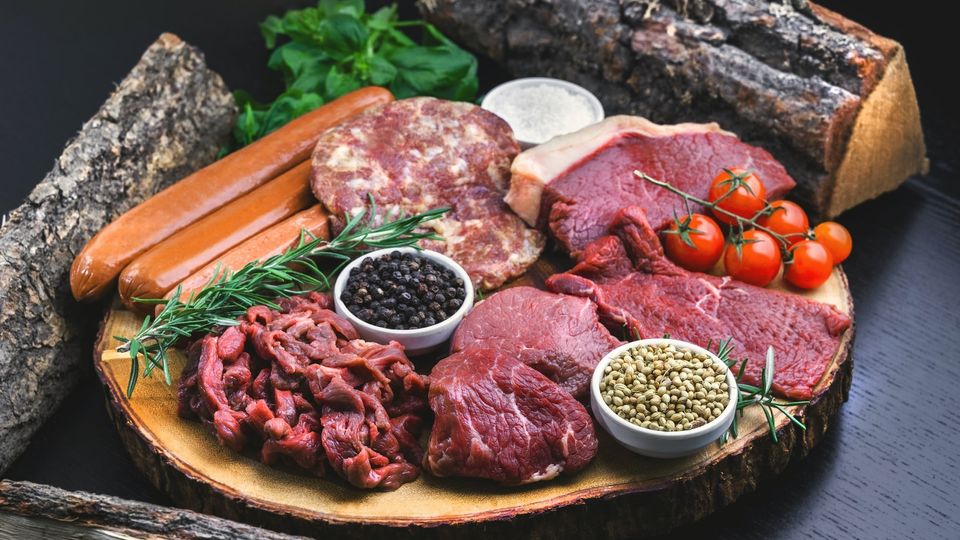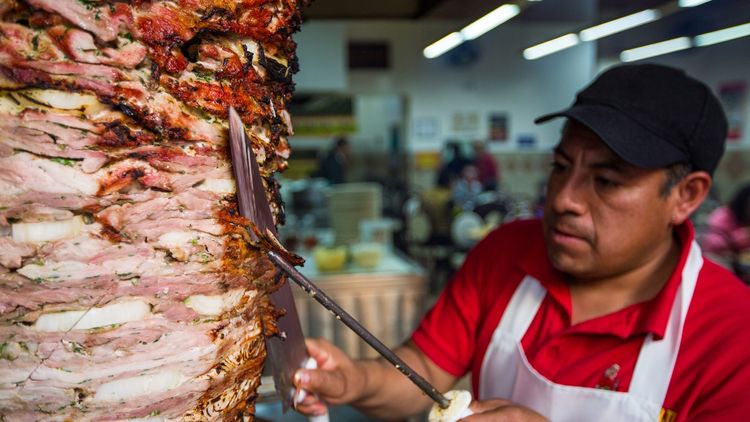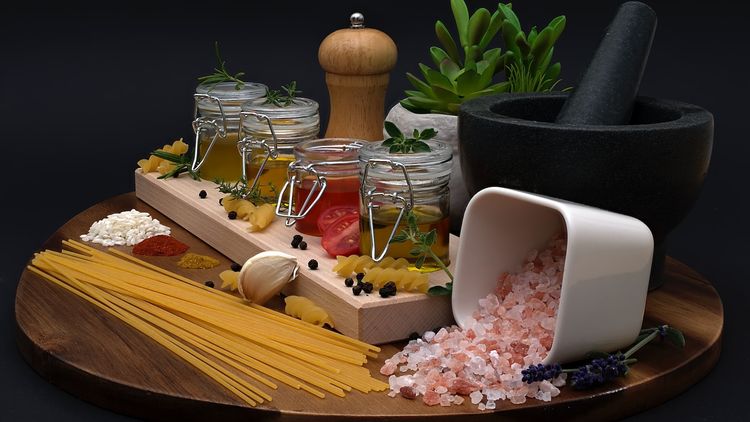How much meat should I eat on the carnivore diet?

So, I recently hopped on the carnivore diet train, where I have the green light to unleash my inner T-Rex and chow down on some delicious meats. 🍖 I know, right? Dreams do come true.
Before we dive in, let me say I'm not a dietician or nutrition expert. I'm a guy who loves meat and learning new things. And you know what they say, sharing is caring! So, let's break down how much meat you should eat on this diet.
Protein Intake
Ah, protein, the building block of muscles and the fuel for gains! But, can you have too much of a good thing? Absolutely. So, how much protein should you be taking in? We need protein, don't get me wrong, it's essential for repairing and maintaining the body, but the key is balance. Ideally, you want a decent protein-to-energy ratio to avoid storing fat and make the most out of protein's thermic effect. Most experts suggest protein should be around 20-50% of the source of your daily calorie. Steak, chicken, fish - they're all excellent options. But, just like anything in life, moderation is key, folks! Too much protein can be rough on the kidneys.
Cutting Out Processed Foods and Animal Products
But wait, there's more! The carnivore diet isn't just a free pass to indulge in every meat known to man. Processed foods? Not so much. Why? These bad boys can contribute to some not-so-great stuff, like heart disease and obesity source. I'm looking at you, bacon and hot dogs. Focus on the quality stuff, like grass-fed beef and wild-caught fish. Trust me, your body will thank you.
Incorporating Variety in Your Meats
Speaking of quality stuff, my friends, variety is the spice of life! Mix it up with some fatty grass-fed beef, pork, and lamb. And remember about organ meats like the beef liver. Liver? It's not everyone's favorite, but it's packed with iron and B vitamins. Plus, bone marrow is pretty tasty and full of nutrients. Would you like to know a secret? Even though chicken and fish are great, they might need to pack more calories for the hardcore carnivores. So, don't be afraid to venture into different cuts of meat and cook them in different ways - grilling, roasting, or slow cooking.

Obtaining Essential Vitamins and Minerals from Animal Sources
Now let's talk about hitting the jackpot – vitamins and minerals! Beef liver, for example, is like nature's multivitamin. It's loaded with vitamin A, which is crucial for vision and immune function. Various animal products also include other gems like zinc, iron, and vitamin D. So, scout around and ensure your plate looks like a treasure trove of nutrients.
Considering Cuts of Meat and Bone Marrow
Here's another gem: different cuts of meat are like different characters in a movie - they all bring something unique to the table. Beef liver's got vitamins; hard-boiled eggs are protein powerhouses and bone marrow? Oh boy, that stuff is good for your joints and a great source of fat. So, vary your meat choices and savor their various nutrients.
Establishing Limits for Calorie and Protein Intake
This one is essential, folks. You must keep those protein and calorie intakes in check. Depending on your goals, activity level, and body composition, you've got to find the sweet spot. But remember too much protein, and you might end up with kidney issues or storing fat. Bummer, I know.
Weight Loss & Weight Gain
Here's the scoop: The carnivore diet can be a game-changer for weight loss because it shifts your body to use fat as fuel. Plus, the high protein content keeps you feeling fuller for longer – goodbye, mindless snacking! But on the flip side, excess protein can spike your blood sugar and insulin levels source. So, keeping an eye on that protein and calorie intake is key, folks!
Cardiovascular Diseases
Now, let's talk about heart health. The carnivore diet can be heavy on saturated fats, sodium, and cholesterol, which ain't too friendly to your ticker. But balancing it out with some low-lactose dairy and opting for leaner cuts can help keep your heart in the game.
Chronic Disease & Health Issues
Last but not least, let's tackle the long-term outlook. The carnivore diet can be great for shedding some pounds and reducing inflammation initially, but ditching the plants might leave you lacking some nutrients. Not to mention the risk of cardiovascular diseases and other chronic issues like hypertension, constipation, and prostatitis. So, the takeaway? Variety, moderation, and maybe don't completely break up with your plant-based buddies.
And that's a wrap! Remember, I'm just a guy sharing his carnivore diet journey, not an expert. But here's the golden rule: Listen to your body, and don't be afraid to ask the experts. Keep on munching! 🥩✌️



